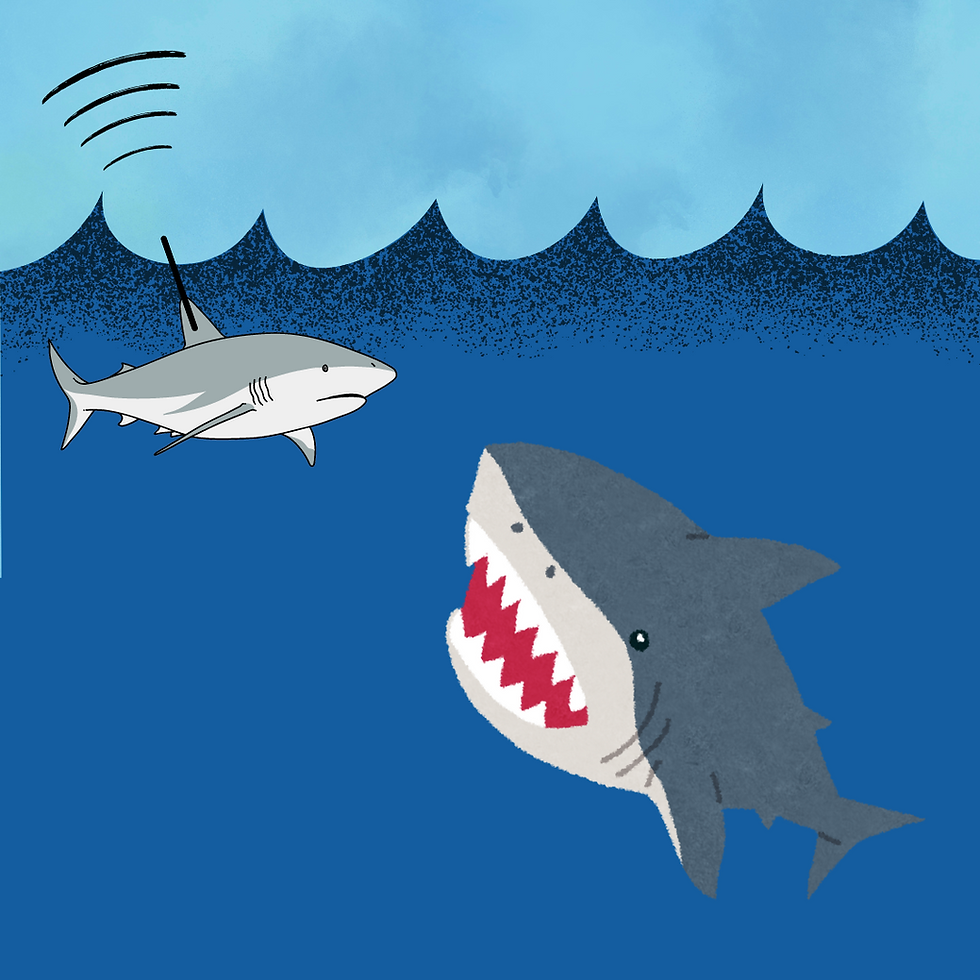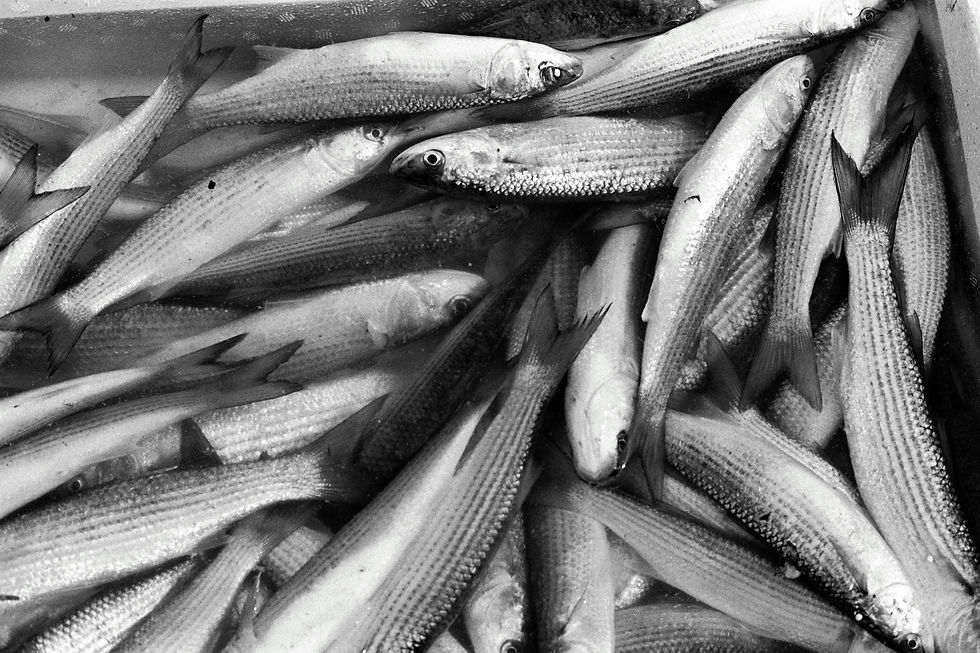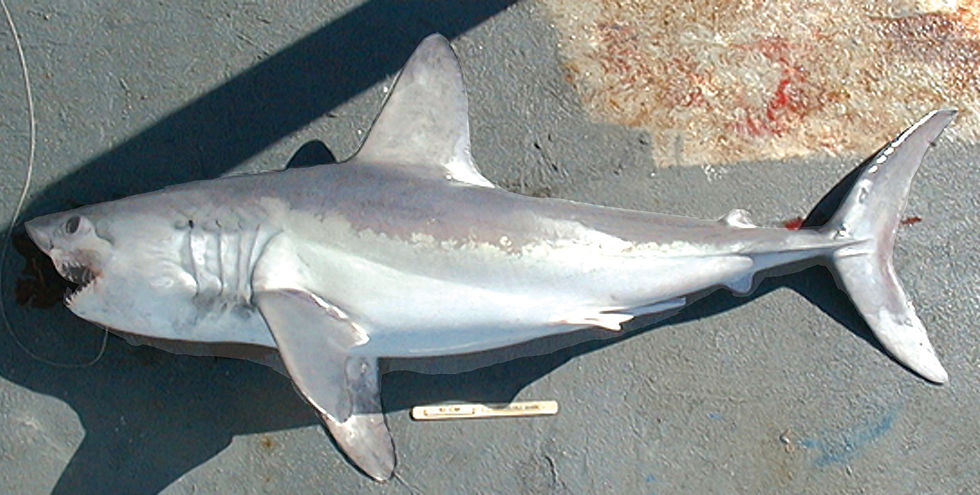Sharks Turning on Each Other: Is Technology Revealing a Hidden Ocean Battle?
- deborahholden
- Sep 16, 2024
- 2 min read
The recent discovery of an 8-foot porbeagle shark being killed by another warm-blooded predator has raised intriguing questions. Are sharks hunting each other a new occurrence, or has this behaviour always existed without our knowledge?

Could it be that dwindling fish populations, largely due to overfishing and environmental changes, are forcing sharks to turn on each other? Or is it simply that advances in technology are allowing us to observe behaviour that has long taken place beneath the ocean's surface?
Sharks have historically been seen as apex predators, occupying the top of the marine food chain with few natural threats. The idea of one shark preying on another, particularly a large species like the porbeagle, challenges this view. Yet, it’s possible this predatory behaviour has always existed, hidden from human observation.
One theory is that declining fish stocks are pushing sharks to find alternative food sources. Overfishing has significantly reduced global fish populations, and with fewer prey available, some sharks may be turning to their own kind to survive. Competition for resources could be making shark-on-shark predation more common, though it’s unclear whether this is a recent development or part of their long-standing survival strategy.

Human activity, such as climate change and habitat disruption, may also be influencing shark behaviour. As ocean temperatures rise and ecosystems shift, sharks might be altering their migratory routes and feeding habits. This could lead to increased encounters between different shark species, with more instances of predation as a result. Similarly, human interference in marine environments may have forced sharks to hunt in closer proximity, increasing the chances of shark-on-shark attacks.
However, another possibility is that this behaviour has always existed, but we’ve only just gained the tools to detect it. Technological advancements, such as finmount and pop-off satellite tags, now allow scientists to track sharks with unprecedented accuracy. These devices provide data on a shark’s movements and surrounding conditions, and in some cases, can even show if the shark has been eaten by another creature. In the past, much of shark behaviour was speculative, but modern tracking technology is offering new insights into their lives, uncovering behaviours that may have been occurring all along.
Whether this is a case of long-standing behaviour finally being observed or a shift in the ocean’s predator dynamics remains uncertain. As researchers continue to study sharks, they are uncovering more about these complex creatures and their relationships within marine ecosystems.
The porbeagle shark, like many shark species, has a slow reproductive cycle, which makes it particularly vulnerable. It takes several years for porbeagles to reach maturity, and once they do, they give birth to relatively few offspring. This slow reproduction rate, combined with overfishing, climate change, and other environmental pressures, has already placed the species in a precarious position. The additional threat of predation by larger sharks further complicates their chances of survival. With fewer fish available and mounting human impact on marine ecosystems, the porbeagle’s future is increasingly uncertain, making it more important than ever to protect these endangered sharks.

To support further research and conservation efforts, consider donating to Shark Guardian, becoming a member, or visiting our shop. Your contributions help fund vital research into shark behaviour and protection. Support Us Here.

Comments